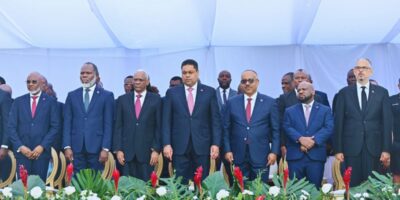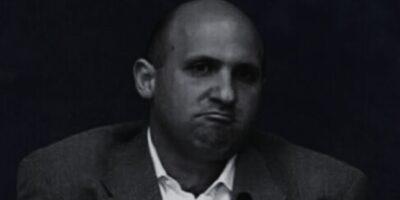More and more Haitians are demonstrating in the streets waving Russian flags, photos of President Vladimir Putin and signs that read pleas for military help from Moscow. This trend conveys the discourse of a frustrated people
Violence, flames, destruction, disorder… for the past two months Haiti has the been at the center of recurring civil unrest. Masses of people have swarmed the streets protesting the rise in the cost of living, insecurity, kidnappings, and fuel shortages.
These protests were inflamed further a few weeks ago by the government’s announcement of a cut in fuel subsidies that eventually led to a significant rise in fuel prices. The voice of the protestors is unified in demanding the resignation of Dr. Ariel Henry who has been leading a transition government since the assassination of president Jovenel Moise.
Read also : The assassination of Jovenel Moïse as told by an executive from the PNH
Amid all the chaotic scenes and fiery demonstrations, one thing in particular caught my attention: Russian and Chinese flags being waved around in the protests, the arms of protestors outstretched with pictures of Russian President Vladimir Putin with pleas for Russian military help written on their cardboard signs. People elsewhere in the world following these events must be asking themselves: “Why are Haitian protestors waving Russian flags?”
There has always been a fringe of Haitian society that idolizes leaders and countries that symbolize resistance to U.S. imperialism. However, these sentiments, typically harbored by self-described socialists and socially-conscious university students, have become increasingly popular and were demonstrated clearly during the recent protests.
There has always been a fringe of Haitian society that idolizes leaders and countries that symbolize resistance to U.S. imperialism.
I highly doubt that Haitians really want a Russian intervention in Haiti, and I suspect that few actually believe that their call for help from Putin would be answered. In fact, most Haitians do not know anything about Russia – and have never seen a ruble bill in their lives. But what these actions demonstrate is that Haitians have been paying attention to global events and are sending a clear signal to the United States who they feel have not treated their country fairly.
Haitians have seen how Russia’s Vladimir Putin has defied the West through the invasion of Ukraine and smell the advent of a new world order where no one country will be calling the shots. It is more of a cry of frustration to their powerful neighbor who through their domination of the Western hemisphere had failed to deliver on a decades-old promise of a brotherly relationship with Latin American countries.
It is more of a cry of frustration to their powerful neighbor…
Indeed, the United States has not treated its neighbors fairly. The past two decades have been characterized by benign neglect of Latin America as the US focuses on other world regions. The most powerful country in the world has remained underinvested in Latin America’s immense socio-economic and public health challenges.
A series of unequal trade policies have created inhumane working conditions in many countries in the region, resulting in further inequality and human displacement. Let’s not forget the countless U.S. interventions, replacing left-wing leaders with favorable regimes more aligned with American business interests.
Indeed, the United States has not treated its neighbors fairly.
These sentiments of frustration are growing not just in Haiti but also in other countries in the Latin America and Caribbean region. Venezuela is no longer the black sheep among countries in the hemisphere that has severed its relationship with the United States. Over the past two decades, many Latin American countries have developed close economic ties with Russia and China; and in recent years, countries such as Nicaragua, Guatemala, Argentina, Chile, and Colombia have elected leftist governments, often pushed to power by their promise of standing up against “the imperialist”.
Read also : King Charles III was involved in the failed reconstruction of Port-au-Prince
The United States should rethink its relationship with its immediate neighbors. The opportunity exists for a positive paradigm shift in its relationship with the rest of the region, especially in a post pandemic world. Yes, it is possible to develop a genuine partnership that addresses regional challenges. The policy implications of that merits another article of its own.
In the meantime, here’s the perfect analogy that sums up sentiments in the region, from Port-au-Prince to Rio de Janeiro: an abused partner winking an eye towards a potential suitor, waiting for the right time and enough courage to walk away.
_
Boaz Anglade is a Haitian development economist working as a consultant in international development. He holds a Ph. D. in applied economics from the University of Florida.
Cover photo : Protesters in Haiti sell off the Russian flag | © Haïti Liberté







Comments